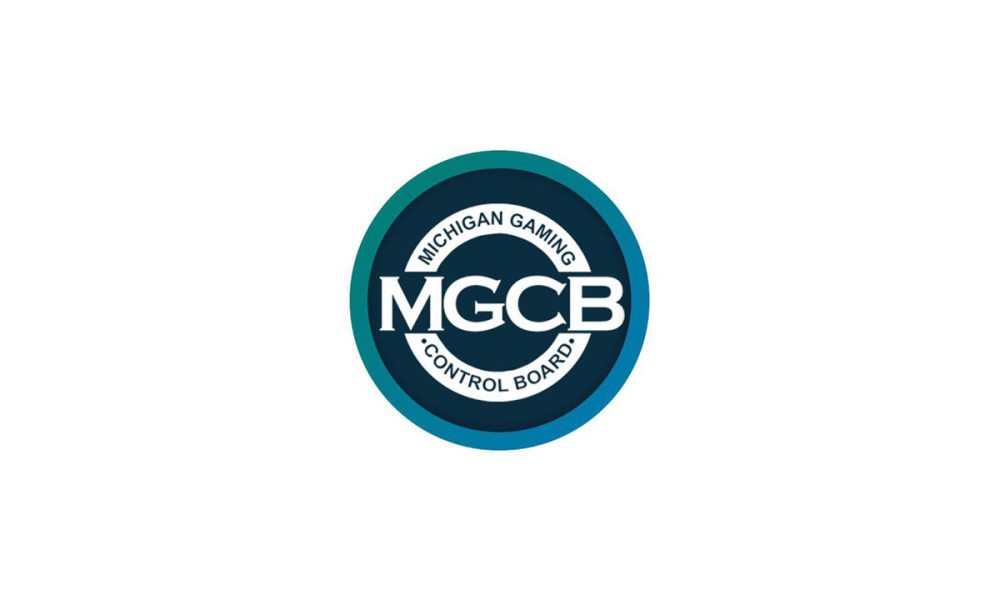Compliance Updates
DNSFilter Data Reveals Dangers to Fake Gambling Sites and Illegal Streaming in Lead Up to Super Bowl LIX
DNSFilter has released the information gathered through its DNS content filtering platform regarding gambling traffic, both malicious and legitimate, in the lead up to Super Bowl LIX. The data showcases key threats during the NFL playoff season, particularly in January during the NFL playoffs, where unsanctioned streaming and gambling activities increased.
On the day of the Super Bowl, DNSFilter blocked 57% more malicious content related to gambling and betting compared to the rest of the NFL post-season. Previous high spikes to these malicious betting sites coincided with Super Bowl LVIII and 2024 March Madness.
Since sports betting is now legal in a majority of US states, overall traffic to DNSFilter’s gambling category has increased over the last year. Compared to the same timeframe last February, daily traffic to all gambling sites has increased 71%, surpassing DNSFilter’s overall network growth of 16%.
Other key statistics and insights from DNSFilter’s research, focusing on online threats leading up to the 2025 Super Bowl, include:
Streaming Media and Malware:
A 15% increase in illegal streaming and torrenting traffic related to fake streaming sites during championship weekend compared to the previous average held between May and December 2024, indicating an escalating risk of security issues tied to streaming during major NFL events. This week had the highest traffic to illegal streaming sites ever on the DNSFilter network. Unauthorized streaming is a common risk factor for organizations, especially with unmanaged devices accessing potentially harmful content.
Threats by Domain:
Domains related to the NFL have been seeing increased security threats, with spikes in malicious activity associated with streaming sites, gambling and possibly phishing attacks targeting Super Bowl fans or bettors. Threat domains with “football” in the domain name surged in January, with spikes on January 14, the day after Super Wild Card Weekend, and Super Bowl Sunday.
Fake Betting Site Trends:
A significant 20% of malicious gambling domains identified during the NFL playoffs used a string of numbers in their names, a common tactic for “mirror” sites that attempt to evade detection. If you’re unsure of the legitimacy of a gambling site, this is an indicator that it may be a scam.
Most malicious domains related to betting were categorized as malware, while most traffic came from newly registered domains. A site with a captcha does not necessarily mean it is safe. Some malicious sites will show a captcha before entering because the host is suspicious of the site, but has not taken it down. DNSFilter encountered a handful of fake betting sites with Captchas during this investigation.
TK Keanini, CTO of DNSFilter, said: “Our technology prevents access to unwanted content by identifying and categorizing threats and harmful sites before a connection is made. With real-time insights into evolving tactics, we’re committed to staying a step ahead, safeguarding users from threats tied to high-profile events like the Super Bowl. By continuously educating and protecting users, we can help foster a safer online environment during sporting events and beyond.”
The post DNSFilter Data Reveals Dangers to Fake Gambling Sites and Illegal Streaming in Lead Up to Super Bowl LIX appeared first on Gaming and Gambling Industry in the Americas.
BetUS
MGCB Issues Cease-and-Desist Order to BetUS

The Michigan Gaming Control Board (MGCB) has issued a cease-and-desist order to BetUS, an offshore gambling operator, for illegally offering internet gaming and sports betting to Michigan residents without proper licensure.
Investigations by the MGCB revealed that BetUS was accepting wagers from Michigan residents on various gambling activities, including sports and casino-style games, without the necessary state authorization. This operation violates Michigan’s Lawful Internet Gaming Act, the Gaming Control and Revenue Act, and the Michigan Penal Code.
“Unlicensed operators like BetUS undermine the integrity of Michigan’s regulated gaming market and expose consumers to potential risks. The MGCB is committed to protecting Michigan residents by ensuring that all gambling activities are conducted legally and responsibly,” said Henry Williams, Executive Director of MGCB.
The cease-and-desist order mandates that BetUS immediately halt all operations involving Michigan residents. The company has 14 days to comply or face further legal action in coordination with the Michigan Department of Attorney General.
The post MGCB Issues Cease-and-Desist Order to BetUS appeared first on Gaming and Gambling Industry in the Americas.
Compliance Updates
Exclusive Commentary from Vixio On Their AML Outlook Findings

Your recent AML Outlook report highlights over €36 million in fines issued across Europe in just one year. What recurring weaknesses or compliance gaps are regulators most commonly identifying in payments and e-money firms?
John Gidla (JG): Regulators continue to flag underinvestment in anti-financial crime controls as a key concern for payments and e-money firms. Common themes include weak governance, limited oversight, and fragmented controls, all of which increase vulnerability to financial crime. There’s a growing expectation that firms scale their compliance frameworks in line with their risk exposure and growth trajectory
The report mentions that AML compliance can be costly—yet the reputational and financial risks of non-compliance are even greater. What are the most cost-effective measures firms can implement today to strengthen their AML frameworks without overwhelming their budgets?
JG: While not all firms can afford advanced compliance tools, strong governance remains one of the most cost-effective ways to reduce risk. Practical steps such as training staff on emerging threats, embedding a culture of accountability, and regularly updating frameworks as the business grows can go a long way in strengthening AML resilience without major spend.
With the creation of the EU’s new AMLA authority, do you expect a more consistent and centralized enforcement approach across Europe? How might this change how firms prepare for inspections and adapt their compliance strategies?
JG: AMLA has the potential to bring greater consistency to AML enforcement across the EU, addressing long-standing issues caused by fragmented supervision and uneven implementation by national authorities. Its impact will depend on how much direct oversight it gains, how assertively it acts on cross-border risks, and whether it can close the regulatory gaps that have permitted high-profile scandals. Firms should expect more rigorous and standardised inspections and will need to ensure their compliance programmes are not only locally robust, but scalable across jurisdictions.
Vixio emphasizes the importance of a proactive rather than reactive compliance culture. In your view, what does a ‘proactive’ AML strategy look like in 2025, and what technologies or best practices are leading firms adopting to stay ahead?
JG: A truly proactive AML strategy in 2025 extends beyond technology to encompass a strong compliance culture at every level of the organisation. Leading firms understand that combating financial crime isn’t just the responsibility of the compliance team — it’s integrated into day-to-day operations, with senior leadership driving risk awareness across departments. In terms of technology, firms are increasingly adopting AI, machine learning, and automated monitoring systems to detect suspicious activity early and reduce human error. However, culture plays a critical role; firms that foster a compliance-first mindset and invest in ongoing staff training are better positioned to adapt to emerging threats and ensure that their compliance frameworks evolve in step with business growth and digital transformation. A proactive approach also means constantly reassessing risk and using data to predict and prevent issues, rather than just reacting to them. With regulations in constant flux, and regulators ramping up enforcement, proactive compliance looks like implementing strategies to anticipate regulations, not just react to them. In Vixio’s PC Outlook Report, we found that a clear majority of firms surveyed are using some form of outsourcing for their compliance functionality, turning to firms like Vixio to get ahead of regulatory change.
Thanks to John Gidla, Head of Payments Compliance at Vixio, for his insightful responses.
The post Exclusive Commentary from Vixio On Their AML Outlook Findings appeared first on European Gaming Industry News.
Compliance Updates
Peru Reports 40% Drop in Illegal Online Gambling

Peru’s Ministry of Foreign Trade and Tourism (Mincetur) reported that, a little more than a year after having implemented the law that regulates the online sector, it has been able to reduce by 40% the offer of illegal games in digital platforms and applications.
In a public statement, the Executive portfolio in charge of regulating gambling also highlighted that, thanks to the inspection work, 15% of the illegal websites “have left the Peruvian market” and that “payment methods providers and financial entities have been contacted to block services to unauthorized operators”.
Based on this, Mincetur highlighted that “Peru has managed to position itself as a regional referent in the integral regulation of gambling” and that, through the normative framework, it was possible to “protect the consumer, guarantee transparency in the operations and promote the formal and sustainable economic development”.
The Ministry highlighted that with the implementation of Law No 31557, which regulates sports betting and online games, “the country became the third country in Latin America to establish clear regulations for this activity”.
“Since its entry into force in February 2024, 60 technological platforms have been authorized and 280 linked service providers have been registered, as well as the accreditation of nine international certification laboratories,” Mincetur said.
In this regard, the Ministry stated that “this regulation has made it possible to formalize the digital sector, promoting an environment of trust for both operators and users.” At the same time, it has allowed “new investment opportunities, boosting the digitalization of entertainment and strengthening the country’s tax collection”.
The post Peru Reports 40% Drop in Illegal Online Gambling appeared first on Gaming and Gambling Industry in the Americas.
-

 gaming3 years ago
gaming3 years agoODIN by 4Players: Immersive, state-of-the-art in-game audio launches into the next generation of gaming
-
EEG iGaming Directory8 years ago
iSoftBet continues to grow with new release Forest Mania
-
News7 years ago
Softbroke collaborates with Asia Live Tech for the expansion of the service line in the igaming market
-
News6 years ago
Super Bowl LIII: NFL Fans Can Bet on the #1 Sportsbook Review Site Betting-Super-Bowl.com, Providing Free Unbiased and Trusted News, Picks and Predictions
-
iGaming Industry7 years ago
Rick Meitzler appointed to the Indian Gaming Magazine Advisory Board for 2018
-
News6 years ago
REVEALED: Top eSports players set to earn $3.2 million in 2019
-
iGaming Industry7 years ago
French Senator raises Loot Boxes to France’s Gambling Regulator
-
News7 years ago
Exclusive Interview with Miklos Handa (Founder of the email marketing solutions, “MailMike.net”), speaker at Vienna International Gaming Expo 2018


















